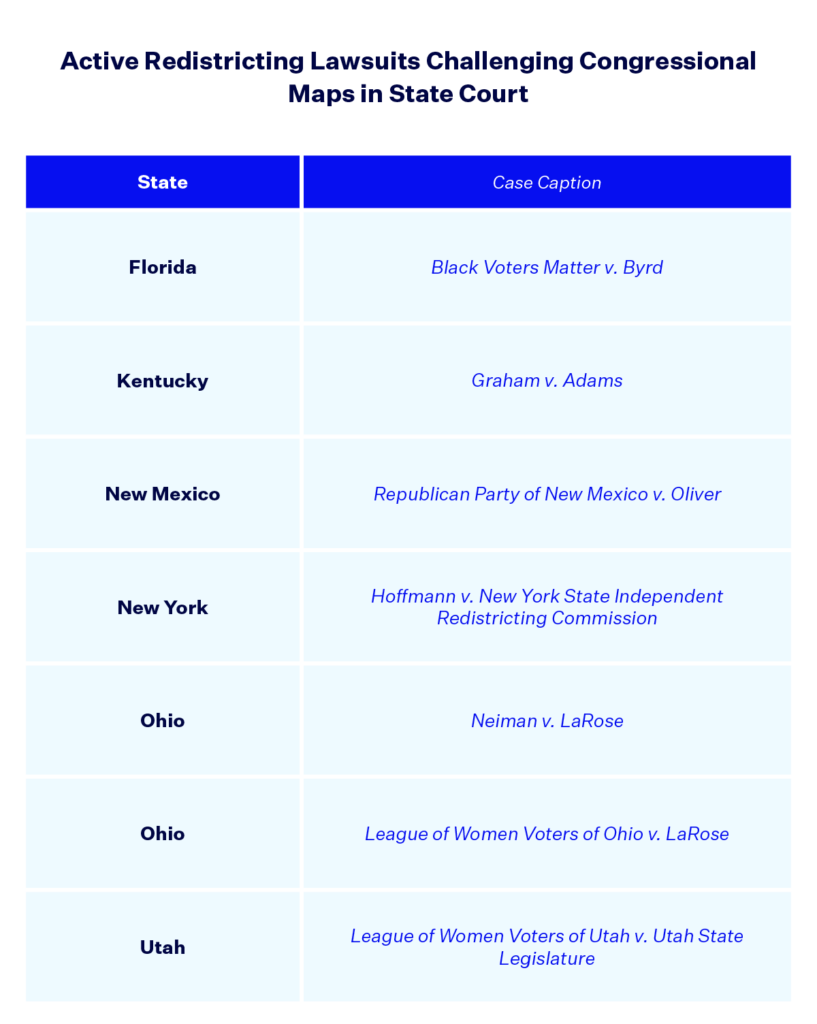Nearly 30 State Court Cases To Continue Unimpeded by ISL Theory Following Ruling in Moore v. Harper
WASHINGTON, D.C. — On Tuesday, June 27, the U.S. Supreme Court issued a 6-3 decision in the landmark case Moore v. Harper, with a majority of the Court ruling to reject the anti-democratic, fringe independent state legislature (ISL) theory. The Court’s decision preserves the authority of state courts to review congressional maps enacted by state legislatures — as well as other state laws regulating federal elections — to ensure their compliance with state constitutions.
Democracy Docket is currently tracking 28 active state court cases that bring claims under state constitutions and state law, seven of which challenge congressional maps and 21 of which challenge voting laws or procedures. As a result of the Court’s ruling in Moore preserving state court review of laws regulating federal elections, these 28 active state court cases can continue unimpeded by the ISL theory.
In the majority of the seven ongoing congressional redistricting cases, plaintiffs assert partisan gerrymandering claims under their state constitutions. With federal court review of partisan gerrymandering claims out of the question following the Supreme Court’s 2019 decision in Rucho v. Common Cause, the Court’s most recent decision in Moore preserves a crucial avenue of recourse for litigants to challenge congressional maps in state court that unfairly benefit one political party over another.

In addition to the seven congressional redistricting cases, Democracy Docket is currently tracking 21 active voting and election-related cases in state court that challenge restrictive voting laws and practices under state constitutions or state law. Although North Carolina Republican Legislators’ appeal in Moore centered around the state’s legislative-drawn congressional map, the fringe ISL theory threatened to foreclose state court review of any state law regulating a federal election beyond just congressional maps. In turn, the Court’s rejection of the ISL theory in Moore indicates that state-level litigation challenging any law regulating federal elections will likewise proceed unencumbered by the ISL theory.
Overall, the Supreme Court’s pro-democracy decision in Moore provides a path forward for state-level voting rights and election litigation across the country. While it remains to be seen how state courts will rule in each of these 28 cases and in future litigation, the Moore decision unequivocally cements the power of state courts to review federal election rules and congressional districts enacted by state legislatures.
Read about the U.S. Supreme Court’s Opinion in Moore v. Harper here.